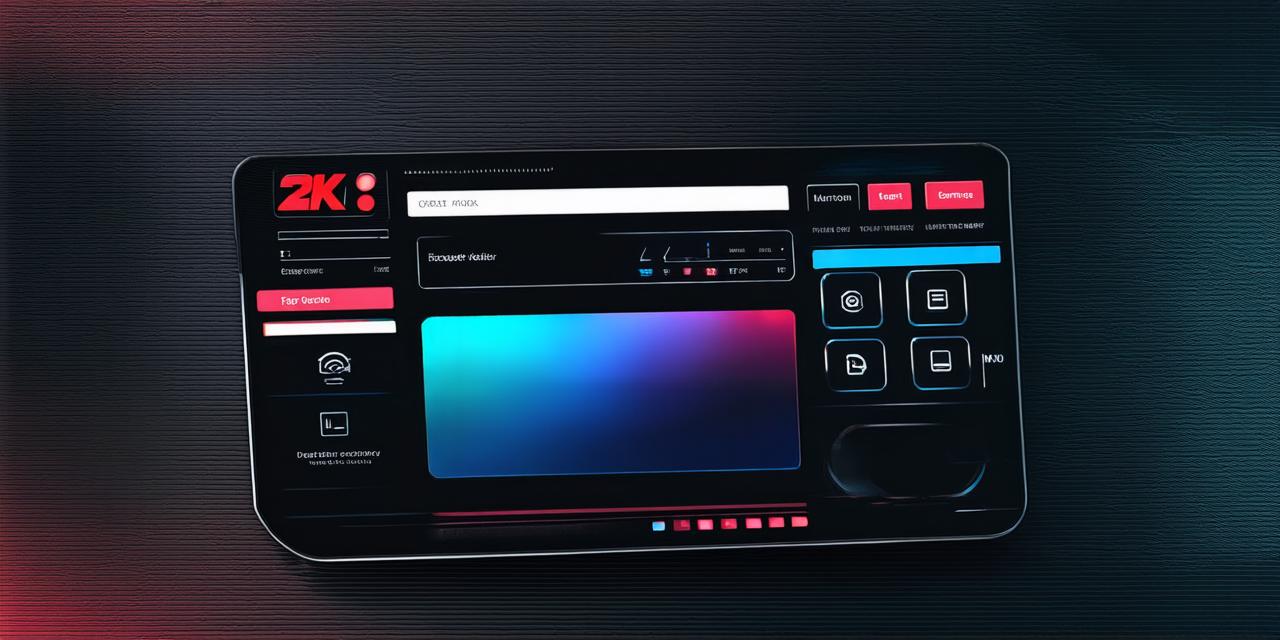Introduction
As a web developer, you understand the importance of having a reliable and efficient web hosting solution. However, with so many options available on the market, it can be challenging to choose the right one for your needs. That’s where web hosting control panels come in handy. A web hosting control panel is an intuitive interface that allows you to manage your website’s hosting account, including its files, databases, email accounts, and security settings.
What are Web Hosting Control Panels?
Web hosting control panels are graphical user interfaces (GUIs) that allow you to manage your website’s hosting account. They provide a centralized location where you can access and configure various aspects of your hosting environment, such as domain names, email accounts, databases, files, and security settings. Control panels vary in complexity and functionality depending on the web host provider you choose.
The Benefits of Using a Web Hosting Control Panel
Easy Access to Your Website’s Files and Databases
With a web hosting control panel, you can easily access your website’s files and databases without having to log in to your server directly. This makes it easier to manage your site’s content and make changes quickly.
Domain Name Management
Most web hosting providers offer domain name management tools within their control panels. This means you can easily register, renew, and manage your domain names from one place.
Email Account Management
Web hosting control panels also allow you to manage your email accounts, including creating new email addresses, setting up email forwarding, and configuring email filters.
Security Settings Management
You can also configure security settings for your website using a web hosting control panel, such as firewall rules, SSL certificates, and two-factor authentication.
How to Use a Web Hosting Control Panel Effectively
Using a web hosting control panel effectively requires some knowledge of web development and server administration. However, most control panels are user-friendly and come with extensive documentation and tutorials to help you get started. Here are some tips for using a web hosting control panel effectively:
- Understand Your Hosting Provider’s Control Panel
- Keep Your Software Up-to-Date
- Backup Your Website Regularly
- Use Security Features Wisely
Real-Life Examples of Web Hosting Control Panels in Action
To illustrate the benefits of web hosting control panels, let’s look at a few real-life examples:
John Doe: A Freelance Web Developer
John is a freelance web developer who works on various projects for different clients. He uses cPanel as his web hosting control panel and finds it easy to manage his clients’ websites, including creating new email accounts, configuring SSL certificates, and managing backups. With cPanel’s user-friendly interface and extensive documentation, John is able to focus on his core work of designing and developing websites without worrying about the technical details of hosting.
Sarah Smith: A Small Business Owner
Sarah owns a small business that sells products online. She uses InterWays Web Hosting Manager (IWHM) as her web hosting control panel, which allows her to manage all aspects of her website, including domain names, email accounts, and databases. With IWHM’s security features, such as two-factor authentication and SSL certificates, Sarah feels confident that her website is secure and protected from cyber threats.
Michael Lee: A Web Development Team Leader
Michael leads a web development team of several developers who work on multiple projects simultaneously. He uses Plesk as his web hosting control panel, which allows him to manage all the websites his team develops in one place. With Plesk’s collaboration features, such as shared storage and version control, Michael is able to ensure that all team members have access to the latest versions of website files and can work together seamlessly.
Web Hosting Control Panel vs. Managed WordPress Hosting
While web hosting control panels offer a high level of flexibility and customization, managed WordPress hosting provides a more streamlined solution for WordPress websites. Managed WordPress hosting is specifically designed for WordPress sites and includes features like automatic updates, backups, and security scans. However, managed WordPress hosting may not be suitable for non-WordPress websites or those that require more complex hosting configurations.
FAQs
Q: What are the most common types of web hosting control panels?
A: The most common types of web hosting control panels include cPanel, Plesk, and InterWays Web Hosting Manager (IWHM).
Q: How often should I backup my website using a web hosting control panel?

A: It’s recommended to back up your website at least once per week, or more frequently if you make frequent updates or changes.
Q: Can I use a web hosting control panel for non-WordPress websites?
A: Yes, web hosting control panels can be used for non-WordPress websites, but they may not offer the same level of customization and flexibility as managed WordPress hosting.
Q: Do web hosting providers offer any discounts or promotions for using their control panel?
A: Yes, many web hosting providers offer discounts or promotions for using their control panels, such as reduced setup fees or longer contract periods with lower prices.
Conclusion
Web hosting control panels are essential tools for any web developer who wants to manage their website’s hosting account effectively. With features like easy file and database access, domain name management, email account management, and security settings management, web hosting control panels offer a centralized location for managing all aspects of your website’s hosting environment. By understanding your hosting provider’s control panel, keeping your software up-to-date, backing up your website regularly, and using security features wisely, you can ensure that your website remains secure and runs smoothly.



